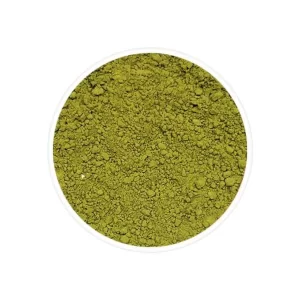Tea for heart health, the world’s second-most loved beverage, could be your go-to drink. Drinking tea may help prevent the onset and severity of cardiovascular disease. Unfortunately, this disease is one of the main causes of mortality and morbidity globally.
According to epidemiological research, drinking tea has a negative correlation with cardiovascular disease. One of the proposed mechanisms that might underlie the protective role is the antioxidant properties of flavonoids found in tea. Scant evidence confirms that 150 mg of flavonoids could quickly produce an antioxidant impact. The average amount of total flavonoids in brewed tea is around 172 mg per 235 ml (brewed for 2 minutes). Hence, drinking 1 and 3.5 cups of tea would produce immediate and severe physiologic effects, respectively.
Our Tea for Heart Health Could Help Keep The Doctor Away
- According to recent studies, those who consume tea at least three times per week have better heart health.
- Polyphenols, which can be found in black and green teas as well as other foods, are responsible for the health benefits.
- The advantages were more significant for men than for women who drank green tea.
A cup a day could help keep the doctor away — and increase your lifespan as well.

Three or more cups of tea each week, according to research, may improve cardiovascular health and lengthen life. Various observations explain health benefits of tea in cardiovascular disease prevention. In Scientific studies, the main determinant comes from the presence of various antioxidants. They are flavonoids.
Drinking Tea Lowers The Risk Of Heart Diseases
Green and Black tea are the two primary varieties. Black and Green teas are both excellent dietary sources of flavonoids. The evidence that is currently available indicates that frequent tea consumption may lower the risk of heart disease. The flavonoids in tea may be primarily responsible for the cardiovascular health benefits. Cross-sectional and prospective demographic research has shown a link for the tea lovers. The flavonoids consumed with tea lowers risk of cardiovascular disease.
Moreover, there have been a mass researches of potential routes and causes. A growing body of evidence suggests that tea and its flavonoids can improve endothelial function. Also, the nitric oxide status, may be at least partially to blame for the positive effects on cardiovascular health. Additionally, there is evidence—albeit scant—that green tea’s flavonoids may have advantages. They are in terms of body fatness and weight. Tea has the potential to lower oxidative injury, inflammation, platelet aggregation and BP. It also reduces the risk of type 2 diabetes. Yet, there is not enough data to make any inferences.
Green Tea Or Black Tea For Heart Health?
It’s important to note that the advantages differ based on the kind of tea. While polyphenols are present in both black and green tea, green tea users may experience more of a difference. This might be the case because the production process used to make black tea may have diminished the potency of the polyphenols. Black tea is also frequently served with milk and diluted with it.
The Chinese Academy’s professor of epidemiology or medical genetics, observed that research participants’ tastes tended to lean largely toward green tea.
Another aspect to take into account is the fact that men experienced the health benefits more so than women. According to researchers, this may be due to women having a lower prevalence of stroke and heart disease.
Drink More Tea This Year
The anti-oxidant properties of foods high in flavonoids may lower the risk of cardiovascular disease. People who don’t drink tea may be able to change their way of life to include three or maybe more cups per week.
There are alternative ways to obtain these advantages, though, for those who don’t consume green tea. Foods like red wine, dark chocolate, and berries all contain polyphenols. Synthetic polyphenol supplements are also available. But they don’t offer the same health benefits as natural polyphenols. The study’s conclusion is unmistakable.
Tea, especially green tea, has cardioprotective properties. You may include it in the toolkit for preventing cardiac events.



